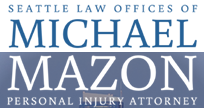Understanding the legal concepts involved in personal injury cases can be complex and overwhelming for many individuals, even more so when they are dealing with the aftermath of an injury. One of the most important concepts to grasp in this field is the critical role of negligence.
In the sphere of personal injury law, negligence forms the backbone of many cases. It’s defined as the failure to behave with the level of care that an ordinary person would have exercised under similar circumstances. So, when a person acts negligently, causing harm or injury to another, they may be held legally responsible, or liable, for the resulting damages. This includes a wide range of personal injury scenarios, from slip and fall accidents to auto accidents, medical malpractice, and more.
The principle behind this is fairly straightforward—if a person, company, or entity has a duty to exercise reasonable care and they fail to do so, causing harm, they become liable for the damages. However, identifying and proving negligence in a court of law can often be a challenging process, which requires an in-depth review of facts, proof of causality, and an understanding of relevant legislation and precedents.
By gaining insights into the complexities of negligence within the personal injury sphere, victims and their families can understand their legal position much better, empowering them to make informed decisions as they navigate their legal journey. The Seattle Law Offices of Michael Mazon are dedicated to offering trusted professional assistance, every step of the way.
The Four Elements of Negligence
To establish negligence in a personal injury case, four elements must be present and proven. Understanding these elements is crucial for building a solid case:
- Duty of Care: The first element requires demonstrating that the defendant owed a duty of care to the plaintiff. In most personal injury cases, individuals, entities, or businesses have a general duty to exercise reasonable care to avoid causing harm to others. For example, drivers have a duty of care towards other road users, while property owners have a responsibility to keep their premises reasonably safe for visitors.
- Breach of Duty: The second element involves showing that the defendant breached their duty of care by failing to act as a reasonably prudent person would under similar circumstances. In this step, the plaintiff needs to demonstrate that the defendant’s actions, or lack thereof, deviated from the expected standard of care.
- Causation: The third element focuses on proving a causal link between the defendant’s breach of duty and the plaintiff’s injury. In other words, the plaintiff has to demonstrate that their injury was a direct result of the defendant’s negligent actions, and that they would not have suffered harm had the defendant not acted negligently.
- Damages: Finally, the plaintiff must provide evidence of the damages they have suffered as a result of the defendant’s negligence. These damages typically include medical expenses, lost income, physical pain, emotional suffering, and other losses directly related to the injury.
Proving Negligence in Different Personal Injury Scenarios
The process of proving negligence may vary depending on the specific scenario of a personal injury case:
- Auto Accidents: In auto accident cases, negligence can be established by proving that the at-fault driver violated traffic laws, was distracted, or operated their vehicle under the influence of drugs or alcohol. Evidence such as police reports, witness statements, and expert analysis can contribute to establishing the defendant’s negligence.
- Premises Liability: In slip and fall cases or other premises liability claims, proving negligence involves demonstrating that the property owner knew or should have known about a dangerous condition on their premises and failed to take necessary steps to fix or warn visitors about the hazard. Evidence in such cases may include maintenance records, surveillance footage, and witness testimony.
- Medical Malpractice: In medical malpractice cases, negligence is often established by showing that a healthcare provider’s actions deviate from the acceptable standard of care expected in their profession. Expert testimony from other medical professionals is generally required to prove that the defendant’s treatment decisions or actions were negligent.
The Role of Comparative Negligence
In many states, including Washington, the concept of comparative negligence plays a crucial role in personal injury cases. Comparative negligence considers any negligence on the part of the plaintiff, ultimately impacting the amount of compensation they can recover.
Under the comparative negligence rule, the plaintiff’s compensation is reduced based on their percentage of fault in the incident. For example, if a plaintiff is found to be 30% at fault for the accident that caused their injuries, they will only be able to recover 70% of the total damages.
The Importance of Retaining a Personal Injury Attorney
Navigating through the complexities of negligence law and the legal system can be a daunting task without professional assistance. A skilled personal injury attorney can provide invaluable support and expertise throughout the process:
- Investigate and gather evidence: An experienced attorney will conduct a comprehensive investigation, collecting vital evidence to establish the defendant’s negligence and build a case.
- Estimate damages: Your attorney will meticulously evaluate your medical records, lost income, and other relevant information to ensure that your claim accounts for the full extent of your damages.
- Negotiate with insurance companies: Personal injury attorneys have the knowledge and skills to negotiate with insurance companies on your behalf, ensuring you receive a fair settlement.
- Representation in court: If your case proceeds to trial, your attorney will effectively present your case, argue on your behalf, and ensure that your legal rights are protected.
Delving into the Importance of Negligence in Personal Injury Claims
Negligence is a critical factor in personal injury cases, serving as the key foundation upon which liability is assigned. Understanding the elements of negligence, the concept of comparative negligence, and the importance of retaining a skilled personal injury attorney will empower victims and their families to make informed decisions while seeking justice.
At Seattle Law Offices of Michael Mazon, we are committed to providing our clients with exceptional legal representation, ensuring that they can navigate through the complexities of negligence law with confidence and peace of mind. Get in touch with our personal injury lawyers in Seattle today!


Leave A Comment